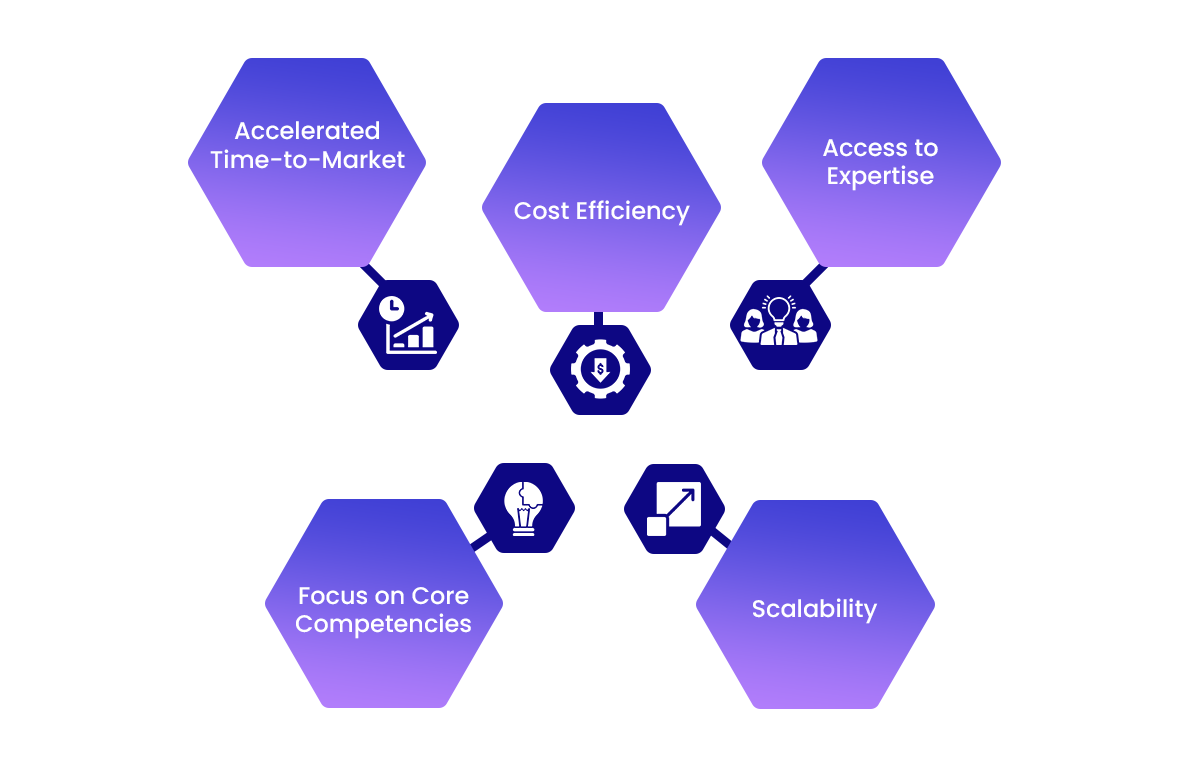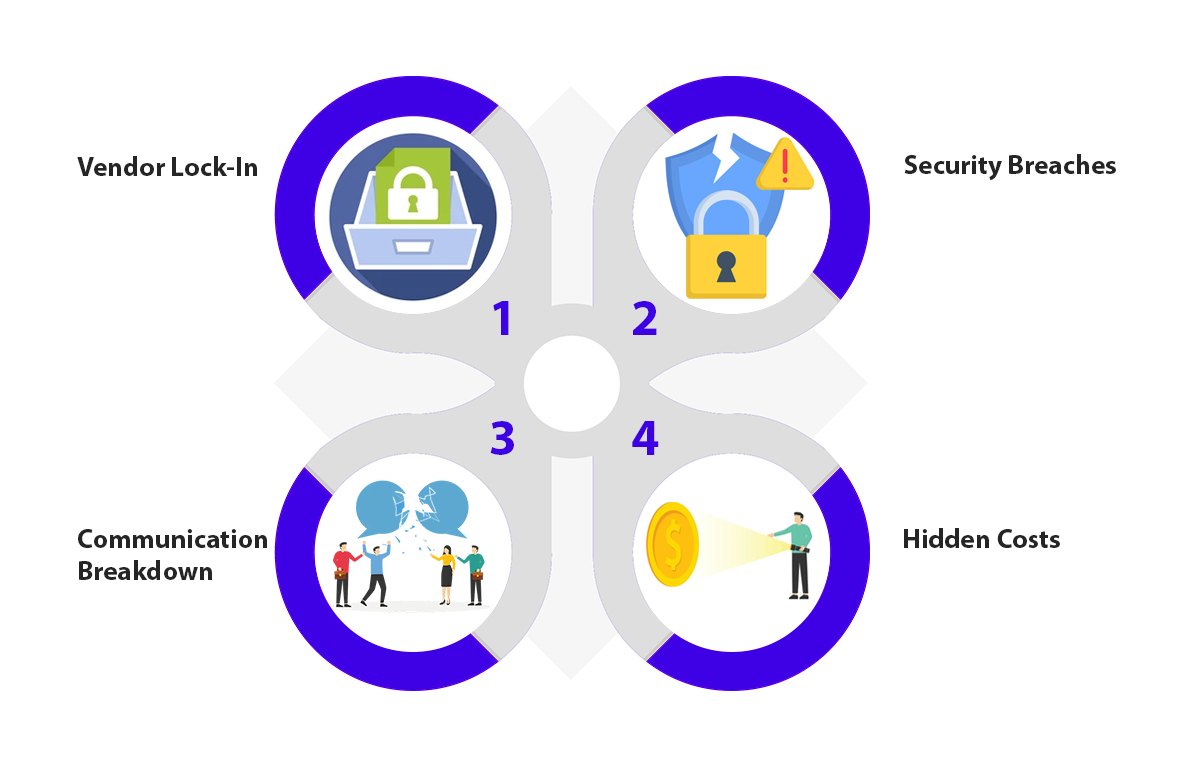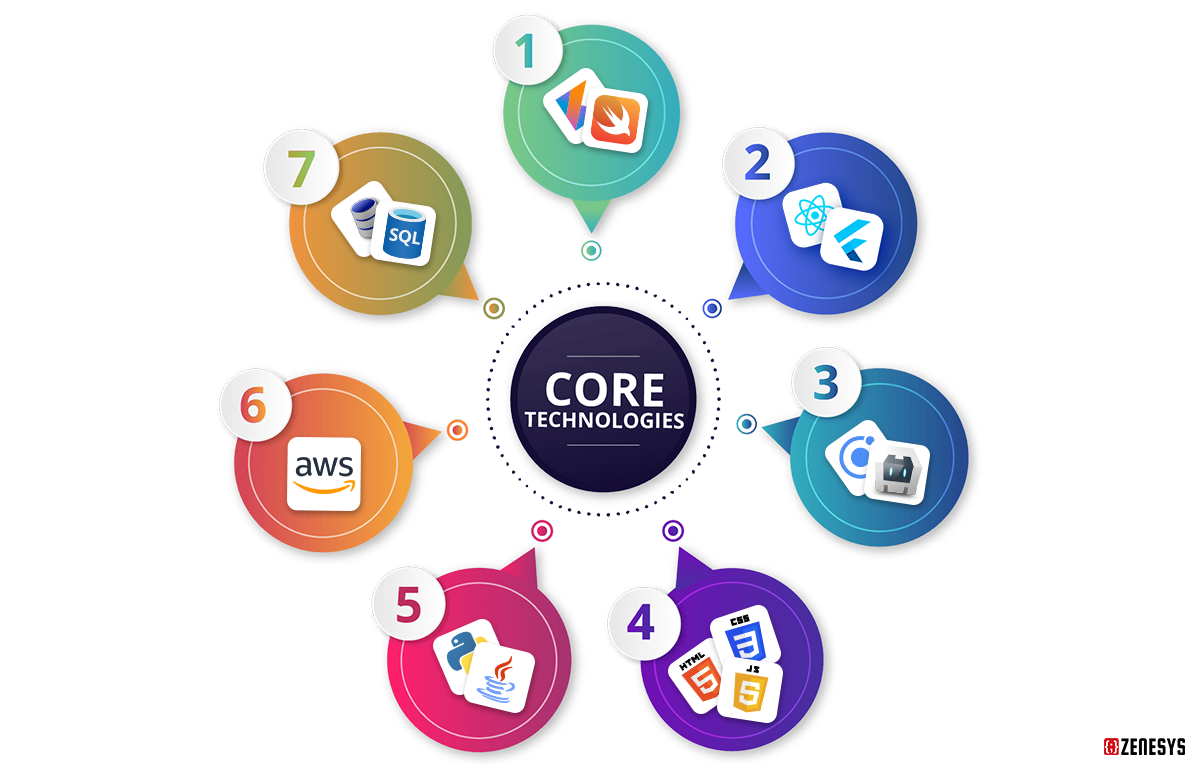White Label App Development stands as a compelling proposition for businesses seeking to expand their digital footprint without the complexities of in-house development. It presents a pathway to offer custom-branded applications to clients, positioning businesses as innovative solution providers.
However, the landscape is multifaceted, encompassing advantages and potential pitfalls. A comprehensive understanding of the intricacies is essential for making informed decisions.
Get ready to discover why white-label app development services are the future of mobile app solutions for businesses of all sizes.
White-Label App Development: A Quick Overview
Essentially, you're acquiring a fully functional app that can be tailored to match your brand identity, features, and target audience. This method saves time, money, and resources compared to developing an app from scratch.
Pros of White Label Apps Development
Furthermore, white-label apps provide a foundation for customization. While the core application is pre-built, businesses retain the flexibility to tailor features, design elements, and user experience to match their brand and target audience. This degree of customization enables differentiation within a competitive marketplace.

-
Accelerated Time-to-Market
One of the most significant benefits of white label app development is the expedited time-to-market. Established development firms possess the infrastructure, talent, and processes to streamline development cycles. This translates to quicker product launches, enabling businesses to capitalize on market opportunities promptly.
-
Cost Efficiency
White label app development is often more cost-effective than building an in-house development team. By outsourcing the development process, businesses can avoid the overhead costs associated with hiring, training, and maintaining a development team.
-
Access to Expertise
Partnering with a white label app development provider grants access to a pool of skilled developers and designers. These professionals possess in-depth knowledge of the latest technologies and industry best practices, ensuring the development of high-quality applications.
-
Focus on Core Competencies
By delegating app development, businesses can concentrate on their core competencies. This allows them to allocate resources effectively, enhance operational efficiency, and deliver exceptional customer value.
-
Scalability
White label app development offers flexibility to scale operations as needed. During periods of high demand, development resources can be easily increased to meet project requirements. Conversely, during slower periods, businesses can adjust their resource allocation accordingly.
Cons of White Label App Development
-
Vendor Lock-In
Selecting a white label app development provider without carefully considering exit strategies can lead to vendor lock-in. This situation can limit flexibility and increase costs in the long run. Evaluating the provider's contract terms and exploring alternative options is crucial.
-
Security Breaches
Data security is a critical concern. If the white label app development provider experiences a data breach, the business's sensitive information could be compromised. Thoroughly vetting the provider's security measures and implementing additional security protocols is essential.

-
Communication Breakdown
Ineffective communication can hinder project progress and lead to misunderstandings. Establishing clear communication channels and defining roles and responsibilities from the outset is vital.
-
Hidden Costs
While white label app development can be cost-effective, hidden costs might arise. Factors such as additional customization, support, and maintenance expenses should be considered. Transparent pricing and detailed contracts can prevent unexpected costs.
Key Factors to Consider While Choosing a white label app development company
-
Expertise and Experience
A proven track record in app development is paramount. The company should understand diverse platforms (iOS, Android, and web) and possess a portfolio demonstrating successful projects. Their experience in your specific industry can be an added advantage.
-
Customization Capabilities
While white label apps offer a pre-built structure, flexibility is essential. The development company should provide customization options to align the app with your brand identity, target audience, and unique features. This includes tailoring the user interface, user experience, and functionality to meet your specific requirements.
-
Technological Proficiency
The company's technological proficiency is a cornerstone of successful collaboration. They should possess expertise in the latest development tools, frameworks, and programming languages. This ensures that the app is built on a robust and scalable foundation.
-
Quality Assurance and Testing
A rigorous quality assurance process is indispensable. The development company should employ comprehensive testing methodologies to identify and rectify defects. This guarantees a high-quality app with optimal performance and user experience.
-
Project Management and Communication
Effective project management is crucial for delivering the app on time and within budget. The development company should have established project management processes and maintain open communication channels throughout the development lifecycle. Regular updates and transparent reporting are essential for building trust.
-
Scalability and Future Growth
Think about future growth and expansion. The app may require additional features or integration with other systems as your business evolves. The development company should possess the capacity to scale the app accordingly.
-
Pricing and Contractual Terms
Evaluate the pricing structure and contractual terms carefully. Understand the costs involved, including development, customization, licensing, and ongoing support. Clearly defined contractual obligations protect your interests and ensure transparency.
-
Support and Maintenance
Post-launch support is vital for addressing issues and implementing updates. The development company should offer comprehensive support services, including bug fixes, performance optimization, and feature enhancements.
-
Security and Data Privacy
In today's digital world, privacy and data security are crucial. The developing company must abide by applicable laws and industry best practices. To safeguard user data, they ought to put strong security procedures in place.
-
Intellectual Property Rights
Clearly define intellectual property rights in the contract. Ensure that ownership of the app and its source code is explicitly stated. This protects your investment and prevents disputes.
-
Client References and Testimonials
Seek recommendations from other businesses that have used the development company's services. Client testimonials can provide valuable insights into the company's performance, reliability, and customer satisfaction.
What App Development Services do We offer at Zenesys?
-
Native App Development
We excel in creating native apps for iOS and Android platforms, leveraging the unique capabilities of each operating system. Our developers harness the power of Swift, Kotlin, Objective-C, and Java to build high-performance, user-centric applications. This approach ensures optimal performance, seamless integration with device features, and a native-like user experience.
-
Cross-Platform App Development
For businesses seeking broader market reach and faster time-to-market, cross-platform app development is an ideal choice. Zenesys leverages advanced frameworks like Flutter and React Native to develop applications that function flawlessly on multiple platforms using a single codebase. This approach accelerates development, reduces costs, and maintains consistency across different devices.
-
Hybrid App Development
Combining the best of both worlds, hybrid app development offers a balance between native and web technologies. We employ frameworks such as Ionic and Cordova to create apps that deliver native-like experiences while sharing code between web and mobile platforms. This approach is suitable for projects with limited budgets or when rapid development is essential.
-
Progressive Web Apps (PWAs)
PWAs bridge the gap between web and mobile applications, offering an enhanced user experience. Zenesys develops PWAs using modern web technologies like HTML, CSS, and JavaScript. These apps can be installed on home screens, work offline, and provide push notifications, delivering a near-native feel without the need for app store distribution.

Our Technology Stack
Core Technologies
- Swift and Kotlin: For native iOS and Android app development, respectively.
- Flutter and React Native: For cross-platform app development.
- Ionic and Cordova: For hybrid app development.
- HTML, CSS, and JavaScript: For web and PWA development.
- Backend Development: Node.js, Python, Java, and .NET for robust backend services.
- Cloud Platforms: AWS, Azure, and Google Cloud for scalable and secure cloud infrastructure.
- Databases: MySQL, PostgreSQL, MongoDB, and Firebase for efficient data management.

FAQs About White Label Apps
A: White label apps work best for businesses that need a quick, cost-effective solution. However, companies with highly specific needs might benefit more from custom development.
Q: How much does a white-label app cost?
A: Costs vary widely depending on the complexity and features. On average, prices can range from $5,000 to $50,000.
Q: Can white-label apps be updated later?
A: Yes, most white-label apps are designed to accommodate updates and new features.


.webp?lang=en-US&ext=.webp)

.webp?lang=en-US&ext=.webp)

